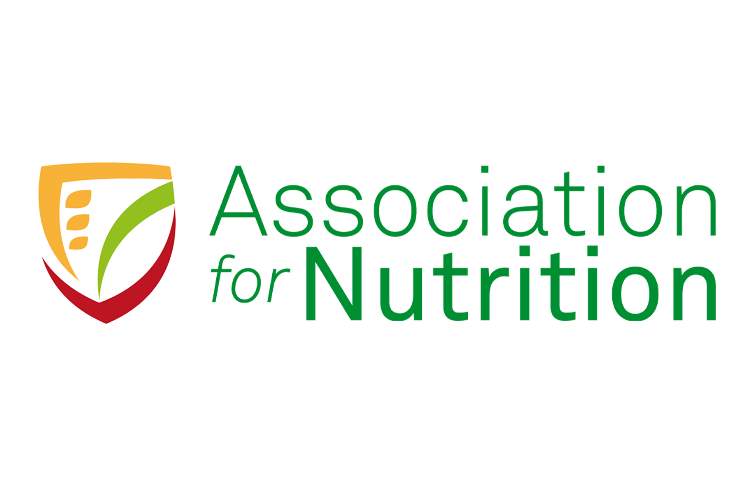

Nutrition Courses & Qualifications
Become certified in Nutrition with our industry-leading, flexible Nutrition Courses. Build a rewarding career supported by highly accredited learning.


Become certified in Nutrition with our industry-leading, flexible Nutrition Courses. Build a rewarding career supported by highly accredited learning.
Future Fit is dedicated to transforming the health and fitness industry by providing world-class nutrition training and education. We empower aspiring nutrition professionals with the skills, knowledge, and expertise needed to build a successful career. Whether you’re looking to become a qualified nutrition coach, expand your expertise, or enhance your understanding of healthy eating, our industry-leading courses give you everything you need to succeed and make a real impact!

Unlock your full potential with our cutting-edge nutrition courses, designed to equip you with the skills, expertise, and confidence to thrive in the health and wellness industry. Whether you’re starting your journey to become a nutrition coach or looking to expand your knowledge, our expertly crafted programs will empower you to stand out, succeed, and make a lasting impact.
Our courses are designed with aspiring nutrition professionals in mind. With 100% online learning, you can study at your own pace, anytime and anywhere, making it easy to fit your training around your lifestyle and goals.

Learn a variety of new skills about nutrition and health to add to your skill set, improve your knowledge, and open more doors to who you can work with as a Nutrition Coach. Choose to learn more about Nutrition and Weight Management or study a Level 4 RSPH or Level 5 Nutrition Course to gain a deeper understanding of Nutrition Science as a whole. Looking for a path to university? Take a look at our Access to HE – Nutritionist and Dietitian Course with Level 5 Nutrition & Level 4 RSPH Course.
Studying this nutrition course online will provide you with the skills required to become a Nutrition Coach.

Gaining a nutrition qualification online is the perfect way to study towards your dream career goals flexibly and optimally. Our unique online learning platform is designed with our students’ ease in mind, giving you the opportunity to:
Study at your own pace – there are frequent checks and guides to show how far you’ve progressed.
Fit study around your current family and work commitments – we don’t push you quickly through your learning.
Have an expert nutrition team an email or phone call away to answer your questions as you advance through your courses – online learning needn’t be isolating!
Welcome to our comprehensive range of highly accredited online Nutrition Courses. Supported by organisations such as the Royal Society for Public Health and the Association for Nutrition, our Courses are perfect for those looking to increase their knowledge or dreaming of starting a career as a Nutrition Coach or Advisor.
Ideal for people who want to build a knowledge base on Nutrition either for personal use or to be able to advise and help their own clients.
Learn how to apply the principles of nutrition across the life cycle and to a range of clients with different goals. Become a Royal Society for Public Health (RSPH) member.
This is the UK's First Ofqual Recognised Level 5 Nutrition Specialist and gives you a good insight into the “why” behind the scientific principles of nutrition
This Access course is the perfect pathway for anyone wanting to progress their study at university. Building on the knowledge developed at Level 3, Level 4 and Level 5, this accredited qualification provides an alternate route for individuals looking to train as a Nutritionist or Dietitian.
Nutrition is vital for everyone, so ensuring that the training you get will allow you to support your future clients and career prospects is vital.
Here are 4 important things to look for when choosing nutrition courses.
Our Level 3 Online Course in Nutrition and Weight Management and Level four RSPH Nutrition Course is fully certified by the AfN.
Always check that a prospective training provider will support you through your studies. We support our students and graduates by providing high-quality learning resources and a dedicated tutor team (all degree-qualified nutritionists and dietitians). The team is available each weekday by email and phone so you never feel isolated in your online training.
Did you know the role of a Nutrition Advisor is one of the highest paid jobs you can do without a degree? Check with your chosen training provider that the course you plan to study is accredited by an independent awarding organisation and leads to an Ofqual-recognised qualification.
We currently offer the highest level of study outside of a degree which will put you ahead of others who have trained with alternative providers.
Once you’re ready to go, all it takes is a call with our team to get enrolled. There are no entry requirements.
From that phone call, you will be given access to all your resources and materials within an hour, so that you can start the e-learning portion of your training as soon as you are ready.

Qualifying as a Nutrition Coach will return a highly rewarding & well-paid career. Once you qualify at Level 3 you can start earning from your qualification, this usually takes between 2-3 months and can cover the monthly costs of your course.
Future Fit Training partners with many public and private bodies and organisations to ensure all of our nutrition courses are compliant, certified, and accredited.

Our Association for Nutrition (AfN) accredited courses meet rigorous industry standards, ensuring high-quality education in evidence-based nutrition. Designed to align with AfN competencies, these courses provide the knowledge and skills needed for professional practice, supporting career progression in health, wellness, and dietary science.
Our e-learning courses are an engaging combination of text, images and video and also include a range of downloadable resources to enhance your studies. Our nutrition tutor support team are on hand by email and phone to answer any questions you may have and ensure you are fully supported and on track.

Our courses set the benchmark for industry training and ongoing support. If you’re ready to get started, so are we.